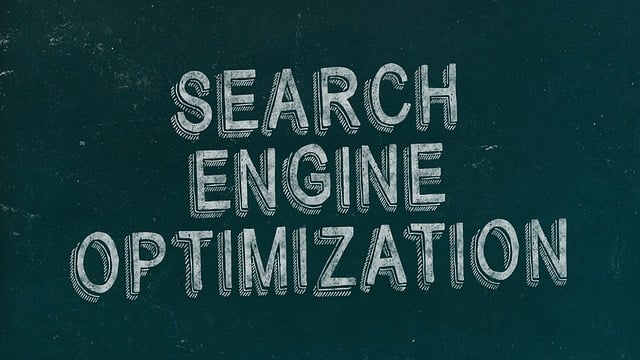AI-powered search is transforming digital information access with unprecedented efficiency and precision. Unlike traditional keyword-based algorithms, these systems utilize machine learning, natural language processing (NLP), and semantic understanding to comprehend user intent and context. By analyzing vast data sets and adapting over time, AI search engines provide increasingly relevant results, revolutionizing the way we interact with information in today's age. This personalized approach enhances user experiences, saves time, and boosts productivity. While challenges like bias-free results and transparency remain, advancements in NLP and ML promise even more intuitive and efficient searches in the future, including semantic search capabilities for faster, more precise knowledge discovery.
“Welcome to the era of AI-powered search, where technology is redefining how we interact with information. This article takes you on a comprehensive journey through the basics, exploring the transformative impact of Artificial Intelligence (AI) on traditional search functions. We delve into its benefits and challenges, offering insights into the future trends shaping this innovative technology. By understanding these aspects, users and developers alike can harness the full potential of ai-powered search to enhance online experiences.”
- Understanding AI-Powered Search: The Basics
- How AI Transforms Traditional Search Functions
- Benefits and Challenges of AI in Search
- Future Trends in AI-Powered Search Technology
Understanding AI-Powered Search: The Basics

AI-powered search is transforming how we interact with information, offering a new era of efficiency and precision. Unlike traditional search algorithms that rely on keyword matching, AI systems utilize machine learning to understand user intent and context. These advanced models analyze vast amounts of data, learning from user interactions to provide more relevant results. Over time, they adapt and evolve, ensuring an ever-improving search experience.
At its core, AI-powered search involves natural language processing (NLP) and semantic understanding. NLP allows the system to interpret human language, while semantic understanding enables it to grasp the meaning behind queries. By delving into these concepts, AI search engines can deliver more accurate and tailored results, revolutionizing how we access information in today’s digital age.
How AI Transforms Traditional Search Functions

AI-powered search is revolutionizing traditional search functions, offering unprecedented precision and efficiency. Unlike conventional algorithms that rely heavily on keyword matching, AI models employ advanced techniques like natural language processing (NLP) and machine learning to understand user intent behind queries. This allows for more relevant results, even when users don’t use specific keywords or phrases.
By analyzing vast amounts of data, AI search engines can predict what information a user might need based on context, location, and past behavior. It can also learn from user feedback, continually refining its algorithms to provide better suggestions and more accurate responses. This level of personalization not only enhances the search experience but also increases productivity, saving users time and effort in their online endeavors.
Benefits and Challenges of AI in Search

The integration of artificial intelligence (AI) in search functionality has brought about a new era in information retrieval, offering both transformative benefits and unique challenges. One of the key advantages is the ability to process vast amounts of data with remarkable speed and accuracy. AI-powered search algorithms can understand natural language queries, interpret user intent, and deliver highly relevant results, enhancing the overall user experience. This technology excels at handling complex and context-based searches, ensuring that users find exactly what they need.
However, challenges arise when dealing with ethical considerations and data privacy concerns. As AI models learn from vast datasets, ensuring bias-free results is crucial. Moreover, the opacity of some AI processes makes it difficult to explain how certain search outcomes are generated, which can be a drawback for users seeking transparency. Striking a balance between these benefits and challenges is essential to unlocking the full potential of AI-powered search while maintaining user trust and satisfaction.
Future Trends in AI-Powered Search Technology

The future of AI-powered search is poised for significant advancements, promising to transform how we interact with information. As natural language processing (NLP) continues to evolve, expect more sophisticated algorithms capable of understanding complex queries and providing contextually relevant results. This will lead to improved user experiences, where searches become more intuitive and efficient. For instance, AI could learn from user behaviour and preferences, offering personalized search suggestions tailored to individual needs.
Additionally, the integration of machine learning (ML) techniques will enable search engines to adapt and improve over time. These systems can analyze vast amounts of data, identify patterns, and dynamically adjust search algorithms to deliver more accurate and timely responses. The trend towards semantic search is also noteworthy, focusing on understanding the meaning behind words rather than just keyword matching. This advancement has the potential to revolutionize knowledge discovery, making information retrieval faster, more precise, and capable of handling ambiguous or complex queries.
AI-powered search is not just a trend, but a revolution in how we interact with information. As we’ve explored, understanding its fundamentals and embracing its potential can significantly enhance our online experiences. While challenges remain, from data privacy to algorithmic bias, the future of AI search looks promising. Continued advancements in natural language processing and machine learning will further refine these technologies, making them indispensable tools for navigating the vast digital landscape ahead.
